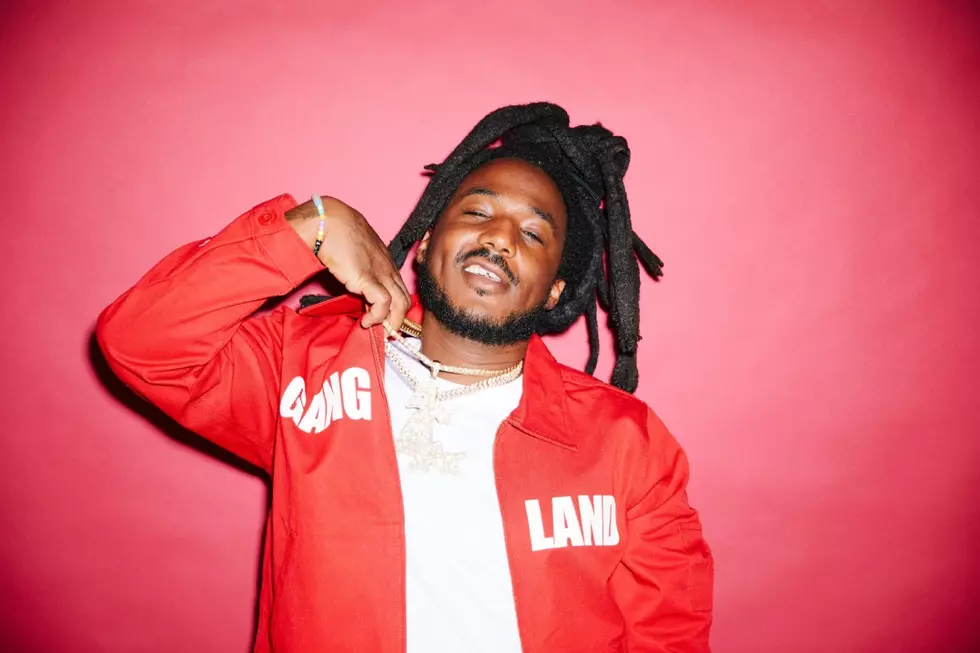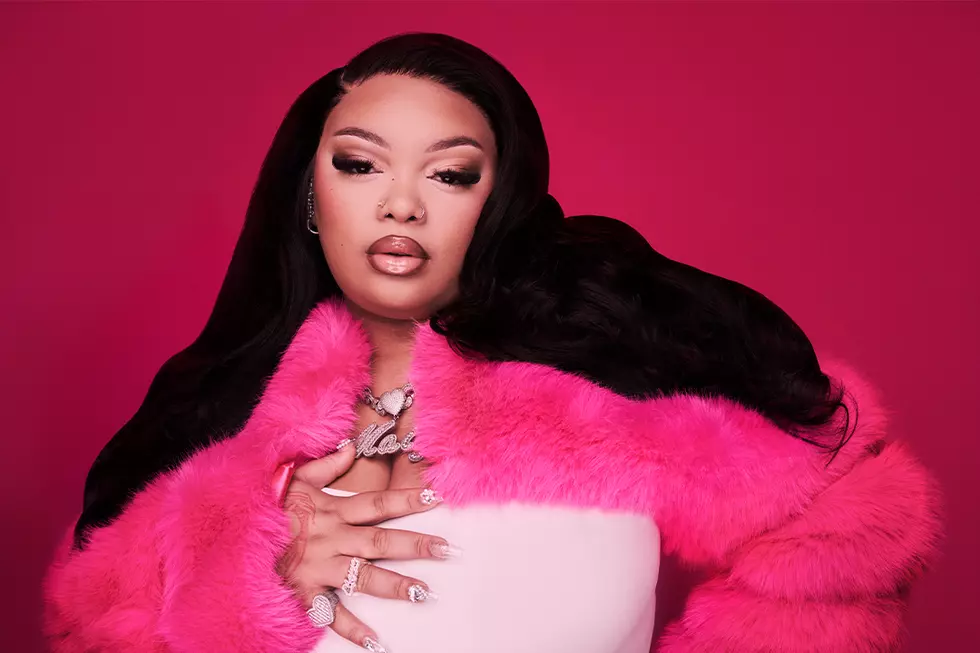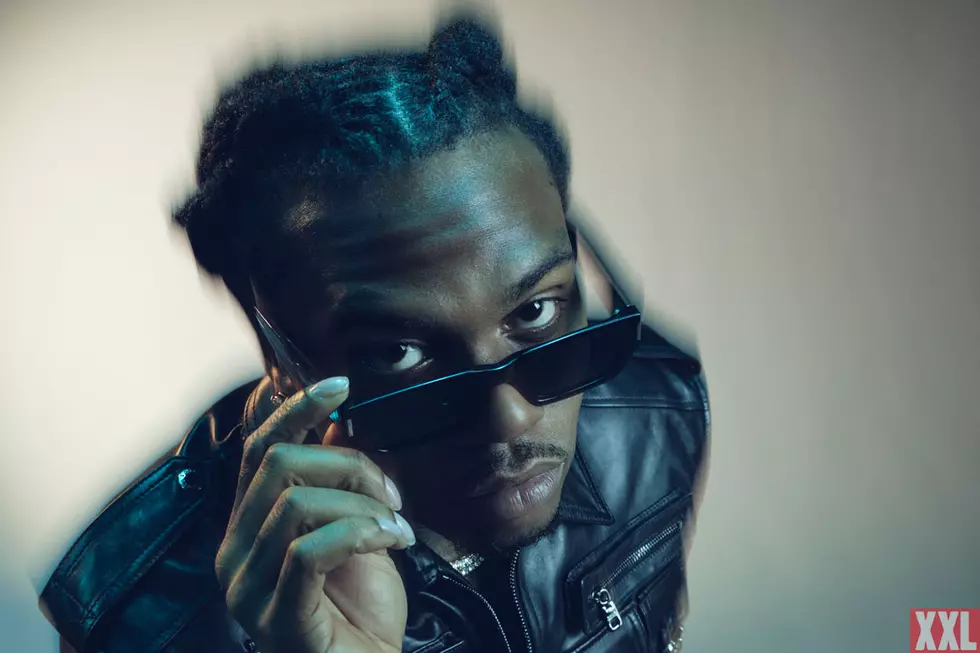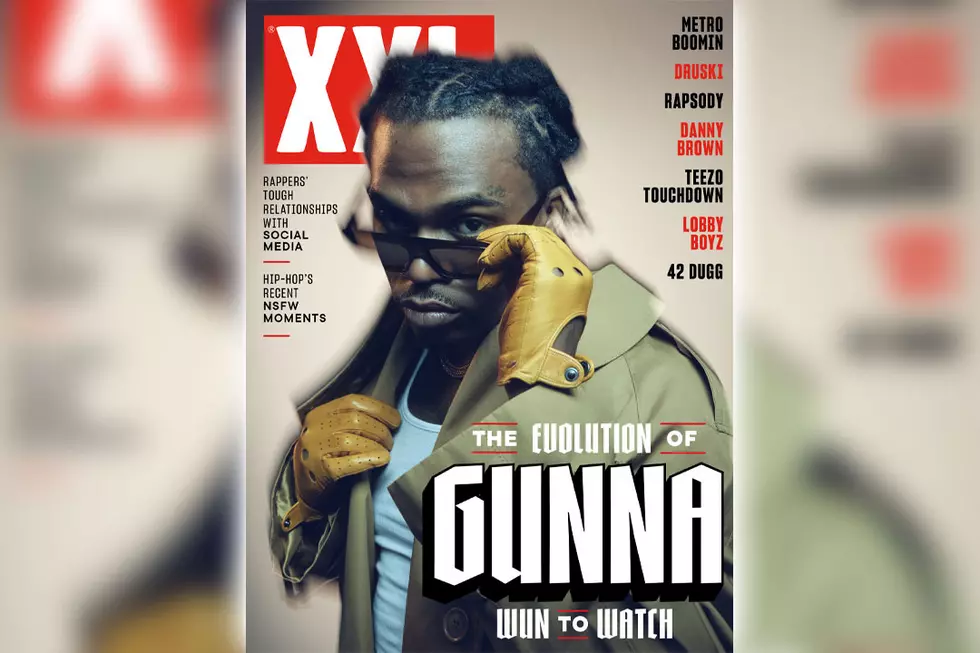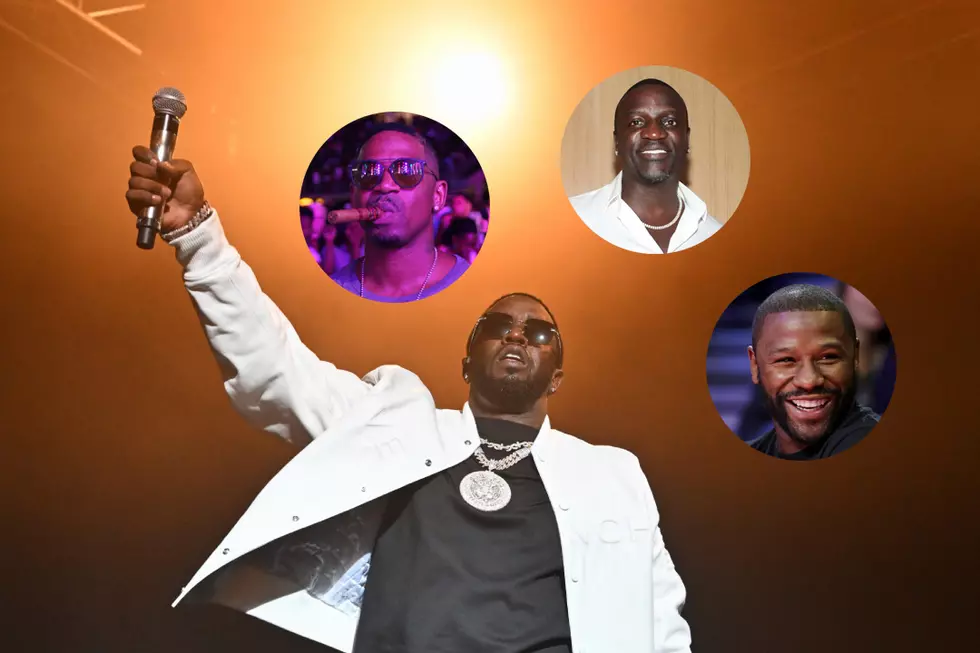
Newly Revived Loud Records Will Honor Legends Like Big Pun While Launching Future Stars
While a number of record labels dominated hip-hop during rap's golden years in the 1990s, Loud Records stood out from the pack. The label, founded by Steve Rifkind and Rich Isaacson in 1991, introduced the world to some of the most iconic rap acts. With the likes of Wu-Tang Clan, Big Pun, Mobb Deep, Twista, Three 6 Mafia, Xzibit, and dead prez having all graced Loud's ranks, the label gained a reputation for its gritty style of rap that also scored commercial success.
Rifkind sold Loud and its catalog to Sony in 2002, later founding SRC, a Universal-distributed record label that became an industry powerhouse as well. Successful runs by Akon, David Banner, Terror Squad, Remy Ma, Pharoahe Monch and others proved that Rifkind's monstrous first decade in the industry was no fluke. He left Universal and SRC in 2012, spending a few years in the shadows to do consulting work and deal with health issues, but he's stepping back into the thick of things with the resurrection of Loud Records through a partnership with RED Music.
This year, Loud will work with RED and Legacy Recordings to celebrate landmark releases from the Loud catalog, including the 20th anniversary of Big Pun's Capital Punishment album and the 25th anniversary of Wu-Tang Clan's seminal debut, Enter the Wu-Tang (36 Chambers). Loud has also launched a digital store featuring exclusive, limited-edition Loud merchandise. While fans of Loud prides the label on its illustrious history and influence in hip-hop, Rifkind has plans to build a roster of new talent and start its revival from the ground up with Bronx rapper Axel Leon, a promising lyricist, first up to bat.
XXL hopped on the phone with legendary CEO and street-team pioneer Steve Rifkind to get the scoop on Loud Records' resurgence, memories of working with Wu-Tang Clan and Big Pun, why he handpicked Axel Leon to be the future of his label.
XXL: You recently announced that you're reviving Loud Records in partnership with RED Music this year. How does it feel to get back into the swing of things in the music industry?
Steve Rifkind: It feels amazing. I always tell people Loud is probably more popular today than it was 25 years ago.
Why do you feel that?
It's a hole there. It's social media now, it wasn't social media back then and when you have groups like Wu-Tang, Mobb Deep, dead prez and [Big] Pun is no longer with us, and the catalog grows day-by-day, it's still very relevant. My youngest son is 17 years old; [he's] mesmerized by what's going on with Loud in the '90s and what's happening with it today.
What spurred the initial talks between you and RED Music about the possibility of reviving Loud and bringing it back into the marketplace?
If I was gonna do something with Loud again, RED is the perfect home—they have the catalog. They're the ones that distributed all of the Loud stuff and it was my home so it was the perfect partnership. We started talking about it towards the end of '17 and we signed the deal March of '18.
You left Universal Records in 2012. What was your role there and what went into your decision to part ways?
I had another label through Universal called SRC Records. David Banner, Pharoahe [Monch], Akon, Melanie Fiona, Ray J, Asher Roth. They went through new management and I wasn't happy with the management.
So is SRC now Loud, or are those two separate entities?
They were two separate entities then. The original SRC was my marketing company, which is the Steve Rifkind Company and that was related with Loud. And then when I started SRC Records, Sony still had the Loud name so I couldn't put records under the Loud umbrella so I just started SRC, Street Records Corporation.
Are there any differences in terms of an artist you would sign to SRC and one you would sign to Loud?
The approach was the same. The only difference was Loud—I really didn't give a shit about radio play and we were self-contained. I had my own commercial staff, a staff of 200 people. And [with] SRC, Universal only wanted radio records, so I had to change it up a little bit. That's when Akon came in, when Fat Joe and Terror Squad came in with "Lean Back." I was looking for more radio records at the time.
So you left Universal almost six years ago. How have you been keeping busy in the interim?
I co-founded ABB with Russell [Simmons]. We ended up getting a new label through Universal at the time then I got sick and I was out for two years. I was doing a little bit of consulting and now I just thought was the perfect time to restart Loud.
So what made you get the itch to jump back into the music with Loud again?
To me, I still get everything first and instead of me saying, "Let me put it out on Warner Brothers or Atlantic or Republic, fuck it, let me put it out myself." I have a vision of what I want this company to be and that's what I did.
Casual fans may be unaware, but Loud previously had a film division.
We put out two movies: Paid In Full with Dame and Jay, and then we did Choices with Three 6 Mafia.
Can you speak on that whole experience, because a lot of people don't even know that you were involved with those two films?
We had a three-picture deal with Miramax, and Dame is an old family friend, Jay is an old family friend and we gave the script to Miramax. That's how that movie got done. And then with Choices, we did it independently through ourselves and financed it by ourselves.
Do you have any plans to revive Loud Films division?
I don't think there'll gonna be a division, but there's gonna be the Loud Records and Steve Rifkind story.
Is that coming soon?
I'm reviewing writers right this second.
Loud is celebrating the anniversaries for a few landmark albums this year, particularly Big Pun's Capital Punishment and Wu-Tang's 36 Chambers albums? What are some the plans you, Wu-Tang and Pun's estate have as far as commemorating these albums?
With Wu-Tang, we're gonna do a few things. We're gonna remake the album with nine MCs from today and each new MC will play a character in the original 36 Chambers. There's gonna be a major tour cause it's also Wu's 25[th anniversary]. And then with Pun, I'm actually on my way to see Joe and sit down to discuss what's happening for this year for the 25th anniversary of Capital Punishment.
One of the first acts that really put Loud on the map was the Wu-Tang Clan, what are your earliest memories of interacting with the group?
I mean, we had a job to do and from the Loud side, our job was to break the artist and the artist side was to work to do whatever they had to do to break. And it was the ultimate team effort, between all nine artists and the label.
Enter the Wu-Tang (36 Chambers) is an album that helped shift the paradigm of hip-hop, particularly on the East Coast? Can you speak on why it's such a landmark album culturally?
To me, it's because where are you gonna get nine emcees that all of them can spit their ass off. The energy of the record and they weren't just like, "You gotta do this, you gotta do that." They broke barriers and broke ground on what they truly believed in.
Capital Punishment was also a big moment for Loud Records. What was it like working with Pun, Fat Joe and the Terror Squad in the creation of that album?
When I met Pun and Joe, it was love at first sight. It was love at first sight and it was great, they both had a workhorse [mentality], they worked their ass off.
Where do you feel it stacks up in the pantheon of debut albums?
I think it goes right up there. It was the first album from a Spanish rapper to have a top-five album debut. It was multi-platinum, it was shipped platinum, truly the truth. So I think at the end of the day, we sold close to 4 million records
The first artist you're rolling out under your partnership with RED MUSIC is Axel Leon, a young rapper out of the Bronx who's been making waves for quite some time. What convinced you that he was the right talent to bank on as far as helping to revive and carry on the Loud Records tradition?
To me, he's the perfect artist. He's an amazing lyricist, he comes from the Bronx and I just feel it's perfect. Like, the shoe is a perfect size.
Jim Jones brought Axel Leon to your attention and helped convince you to give him a look. What is your relationship like with Jim and how did that conversation come about?
Jim is family, so I ran into Jim at the Hip-Hop Awards and he said, "This is the next one." Then Gabby Acevedo—who was my right-hand at SRC and was with me towards the end of Loud—also said, "This kid is a superstar."
Being that he's coming out of the Bronx and on Loud Records, there are obviously gonna be comparisons to Big Pun as Axel's career moves forward. What similarities, if any, have you found between the two, whether musically or in terms of personality?
I haven't really compared. They're both great lyricists and Pun made also amazing great radio records. The only thing that's comparable is they both have an amazing work ethic and they're both great lyricists, but I'm not really concerned cause he's from the Bronx and he's Spanish that he's gonna be compared to Pun. I mean, Pun is a one in a million.
When can fans expect new music from Axel Leon and are there any plans for a full-length project?
In the next two to three weeks you should hear something from him.
Will that be a single or a full-length project?
It will be a single. I'm going to the studio tonight and I'm gonna be picking the single he's playing me. It's a whole project, but we'll come in first with the single.
Who are some of the other artists currently on the Loud roster?
There's nobody else, just him.
The approach is really gonna be artists come first and the artist is gonna have to be around for anywhere from five to 10 years. It's just not gonna be a hit-and-quit.
Being that Loud was birthed in the era of the street team and the music industry has gone digital, how does Loud Records plan to adapt and survive in the streaming era?
It's gonna survive. I don't like to lose, so I'm gonna figure it out. I'm gonna take some of the blueprint that I had in the '90s and then merge it into what's going on today.
Are there any new approaches that you plan to toy with or implement that you can speak on?
Nah, because that usually comes when we come into a marketing meeting or something like that. We'll figure it out but at the end of the day, we're gonna keep our head down and figure out what's best for each artist and each one of them will be a little bit different.
What are some of the newer record labels or CEOs that you feel share a similar spirit to Loud Records or yourself?
I don't really worry about any other CEOs or any other labels. To be honest, my job is to do what's right for my artists, my company and myself. So I don't say I wanna be this person or that person, or I'm gonna try this or I'm gonna try that. I'ma just gonna do what I know how to do and grow as an executive.
How do you envision Loud Records impacting artists and the hip-hop community as a whole moving forward?
I mean, if you look at my track record, forget about all the hits—I never had one real problem with an artist over money. The artist is gonna come first and I'm gonna go through a wall just to fight for us and that's really what it's gonna be. And that's what's gonna make us different. The artists come first.
See 60 Hip-Hop Albums Turning 20 in 2018
More From XXL


